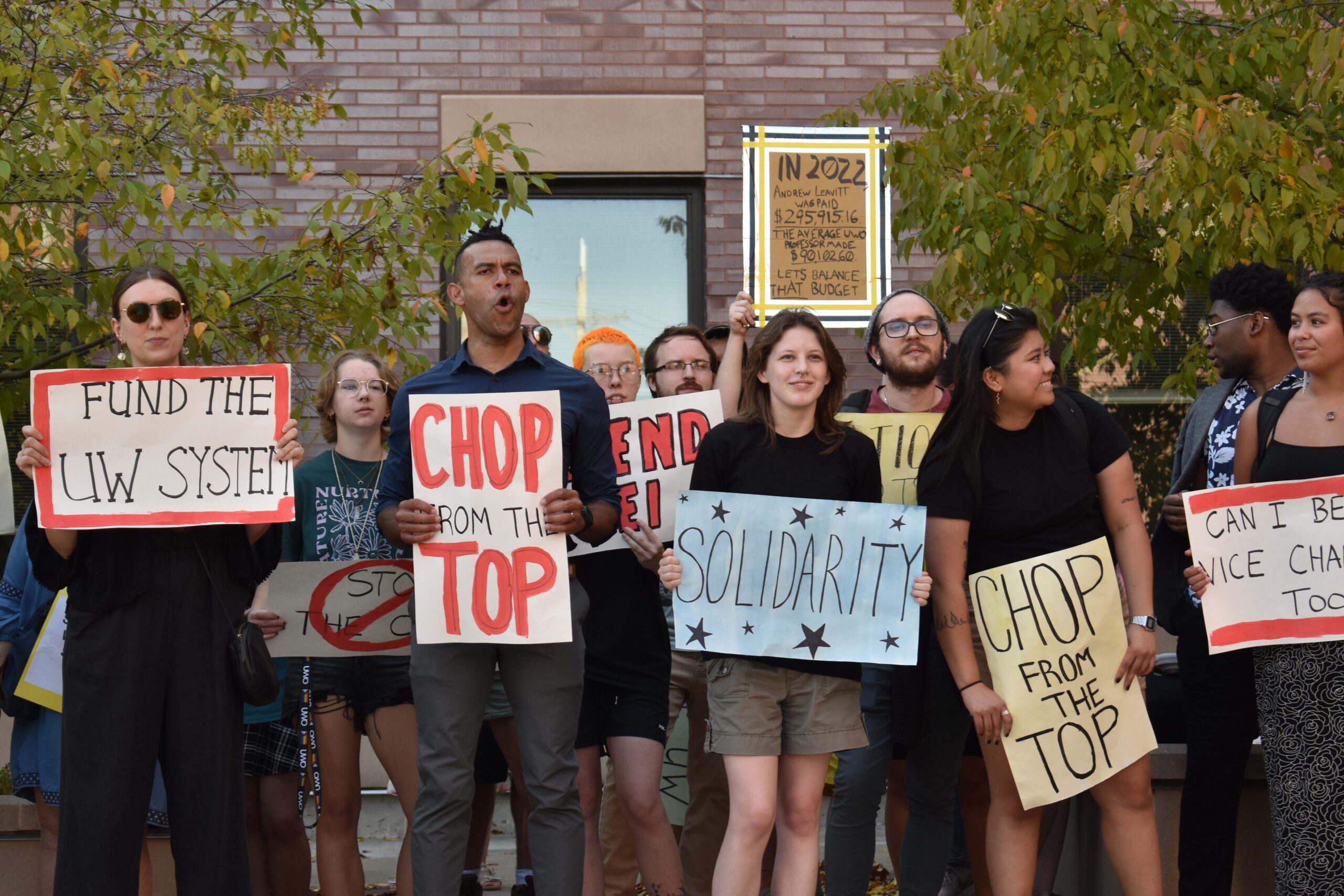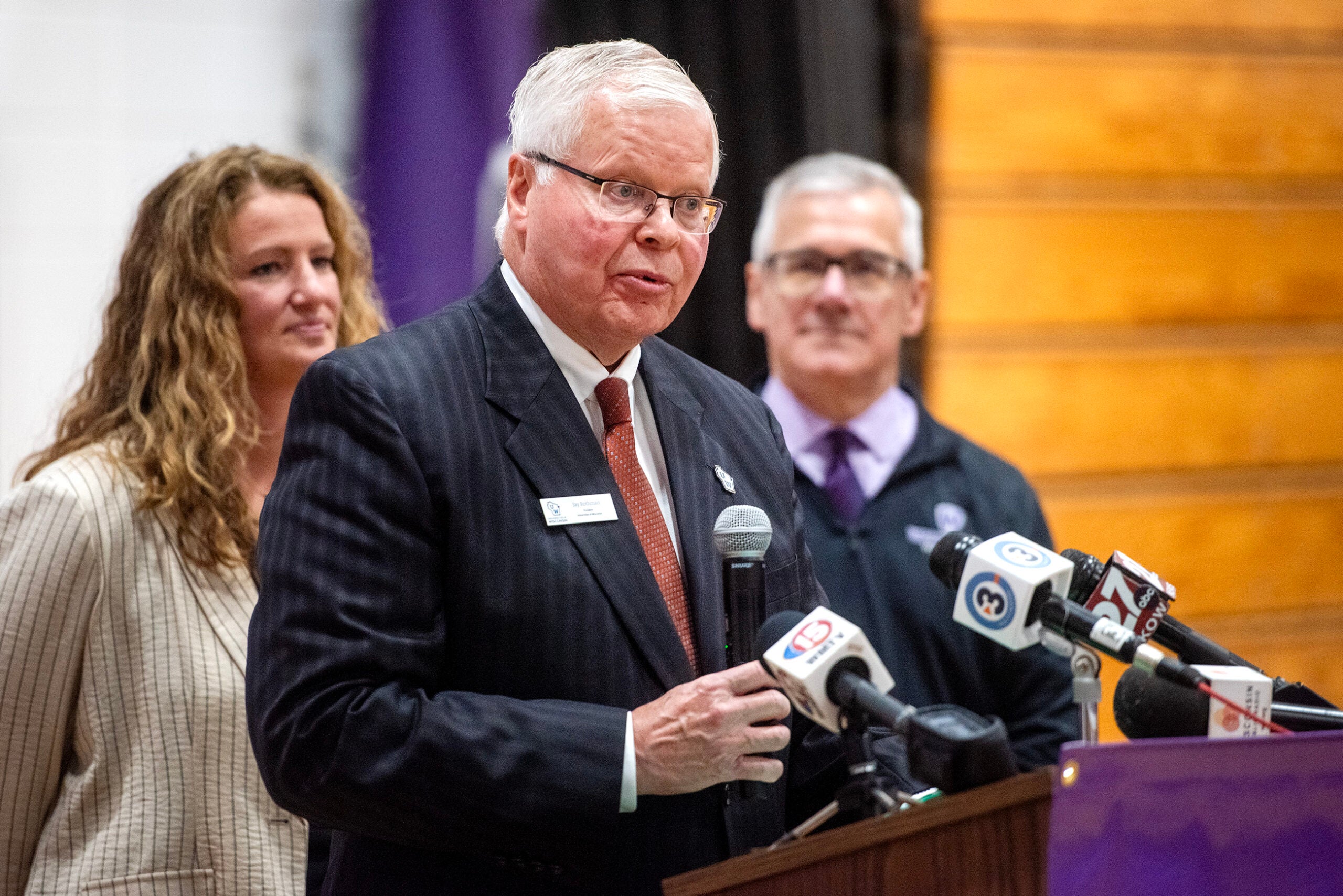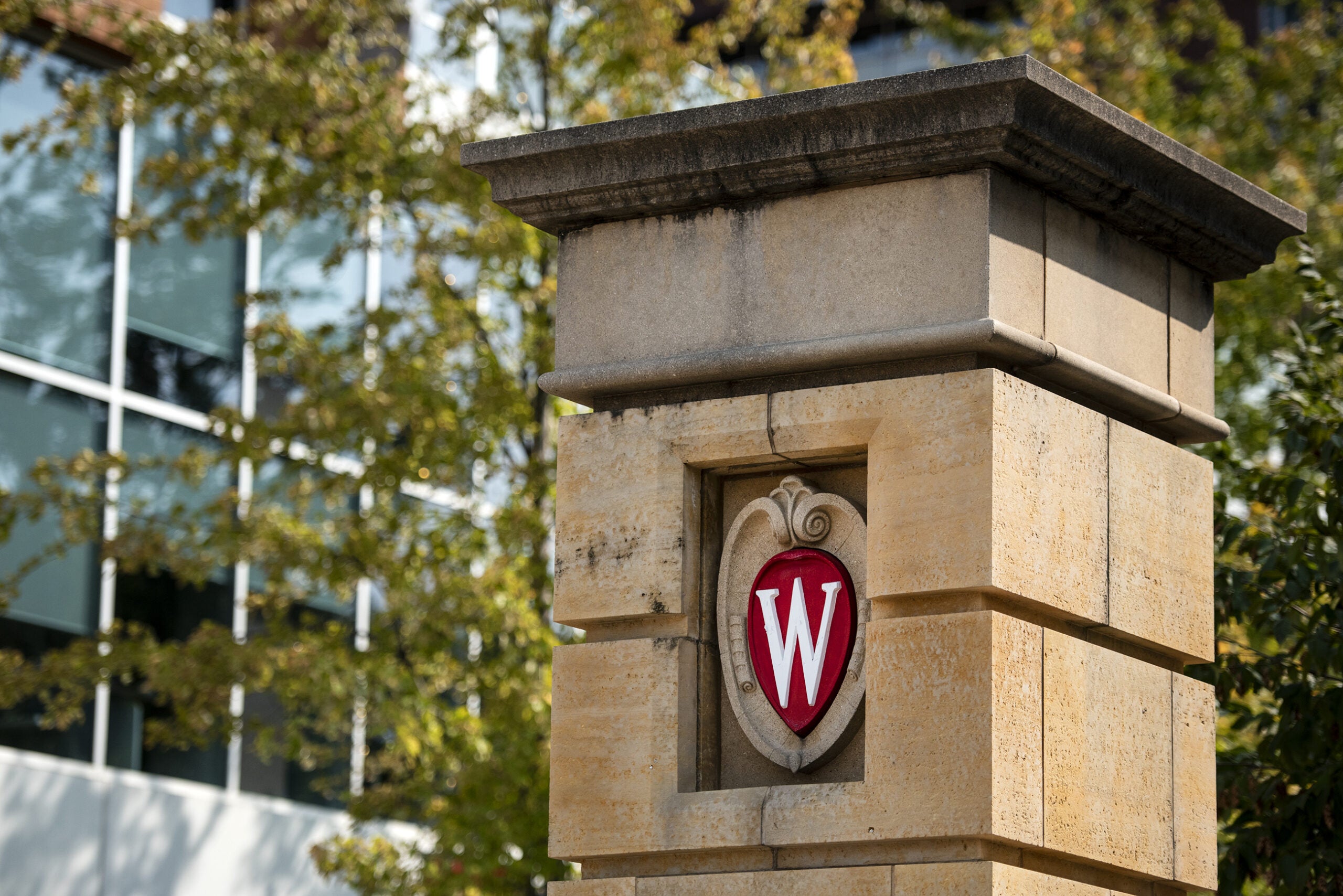University of Wisconsin-Oshkosh sophomore Aubrie Selsmeyer read the assurances from campus administrators that cutting 200 staff positions to address an $18 million budget deficit would have a “minimal impact on students and student success.”
But she doesn’t buy it.
“We’re losing mentors. Our professors are losing colleagues and friends,” Selsmeyer recently said on WPR’s “Central Time.” “There are going to be empty classrooms. Emails are going to go unanswered. And I think we’re going to lose things that we absolutely took for granted and we may not even realize yet.”
News with a little more humanity
WPR’s “Wisconsin Today” newsletter keeps you connected to the state you love without feeling overwhelmed. No paywall. No agenda. No corporate filter.

In October, Chancellor Andrew Leavitt announced the university had issued 140 layoff notices and 76 employees had accepted offers for voluntary retirement.
“The actions we are taking are structured with stewardship: to support UWO’s core academic mission, to have minimal impact on students and student success, and to sustain an institution this region, the state and its people will rely on for decades to come,” Leavitt said.
UW-Parkside and UW-Platteville leaders also announced before the fall semester that they were considering furloughs, retirement incentives and layoffs to address budget deficits.
Selsmeyer and Jack Schindler Van Hoof, a UW-River Falls junior, appeared on “Central Time” to offer student perspectives as 10 of 13 state university system campuses entered the fiscal year with budget deficits.
Schindler Van Hoof said the consulting firm Deloitte has recently been at UW-River Falls. The company contracted with the university system to “conduct financial and strategic assessments” at UW schools, according to documents from an August Board of Regents meeting.
READ MORE: UW System will launch direct admissions initiative with 2024 senior class
The company’s presence has been met with “a lot of concern from staff and faculty,” Schindler Van Hoof said.
“We haven’t necessarily seen those budget cuts yet, and we haven’t seen any layoffs yet, but the general mood on campus is one of apprehension,” he said. “We’re waiting to see. It’s a bit of an anxious time right now.”
In late November, Universities of Wisconsin President Jay Rothman came under scrutiny after The Daily Cardinal, a student newspaper at UW-Madison, reported on an email that Rothman had sent to chancellors. In the email, Rothman suggests “shifting away” from liberal arts programs in favor of career-focused disciplines. Rothman later said he stands in support of liberal arts programs.
READ MORE: UW-Oshkosh faces $18M deficit, plans to cut 200 staff positions
Schindler Van Hoof — who is studying English, creative writing and journalism — said he has seen the value of liberal arts programs.

“It’s universally beneficial for anyone who is going out into the workforce,” he said. “Targeting liberal arts courses will really damage that sort of universal value.”
READ MORE: ‘Put students first’: Dozens gather to protest UW-Oshkosh plan to cut 200 positions
Selsmeyer is also studying journalism and serves as the opinion editor of the UW-Oshkosh student newspaper, The Advance-Titan. A few days after Leavitt’s announcement about layoffs and other cuts, she wrote about the depressed mood around the university.
“Campus has turned into a desolate, post-apocalyptic ruin waiting for help that isn’t coming,” she wrote. “It’s been weeks of quiet mumbles exchanged between faculty in the hallways; weeks of speculation; weeks of asking for clarity and not receiving it.”
Wisconsin Public Radio, © Copyright 2026, Board of Regents of the University of Wisconsin System and Wisconsin Educational Communications Board.







